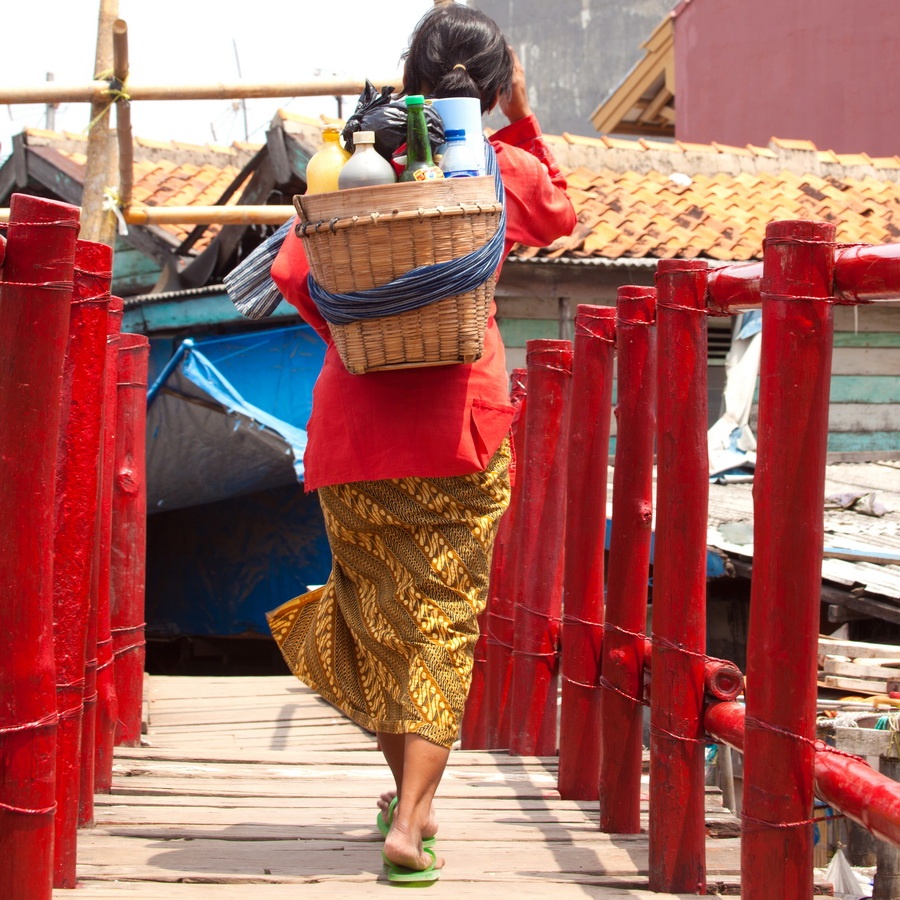As the dry season turns wet and the rains come knocking on our doors (and, in my case at least, dripping through our ceilings and onto our computers) it’s time for me to enjoy a bout of flu and to create a mini-Mount Merapi of used tissues next to my sickbed.
Eventually, it came time for me to head off to the chemists for a big bag of pharmaceutical sweeties. I then headed back home clutching around five different remedies in my hand and found myself reflecting on how much I had gone local, vis–à–vis my propensity for chomping on pills as I would on a bag of M&Ms.
Most Indonesians seem to need little encouragement to neck pills and potions by the bucketful, and not only chemists but also supermarkets, convenience stores and even a roadside warungs are packed with tablets which are all guaranteed to cure you of common ailments such as flu, muscle pain, headaches, Batavia belly, cancer, spina bifida and the like.
There are also plenty of remedies out there to ease the symptoms of those Indonesian sicknesses that don’t precisely match up with strict biological and physiological categories. I’m referring here to those two stalking horses of the Apocalypse, masuk angin (enter wind) and panas dalam (hot inside). What these two ailments actually match up within precise medical terms has always eluded me, however, these two conditions between seem to cover pretty much all bases, from mild indigestion to haemorrhagic Ebola fever. Moreover, I’ve learnt through bitter experience that wind is far more likely to exit my body than it is to enter it.
And it’s not only humans that are stricken down by these local pandemics. I was once on an InterCity bus travelling through Sumatra. The bus broke down and word soon spread among the stranded passengers that the engine had suffered a fatal attack of masuk angin.
Indonesian television is full of advertisements for pills, of course, my favourite of which would have to be a product called Pil Kita (Our Pills). What these little babies do is a mystery but apparently, the things are a panacea for the whole family.
“Dad, why are you making me take these pills? What are they for exactly?”
“They are for us, my boy! They’re ours. And let’s have a little less backchat shall we?”
Traditional Indonesian remedies are, of course, dominated by jamu, which are those not very pleasant blends of herbs that are sold in roadside stalls or by those ladies who pound the streets with baskets of bottles on their backs. Jamu is a multi-million dollar industry and there are different options available to tackle everything from menstruation pain and acne to kidney stones and impotence.
The reason that these potions remain popular, however, may have as much to do with poverty and desperation as it does with credulity. I’m sure that most Indonesians are aware that glasses of foul-tasting blended plant roots and eggs don’t stack up particularly well against heart defibrillators, keyhole surgery, dialysis machines and modern drugs, however, access to the expensive machines that go, “Ping” is so often beyond people’s financial means here.
Moreover, Indonesian doctors will often prescribe expensive, imported medicines when locally-made generic drugs are available. Doctors will also engage in what is known as polypharmacy, i.e. prescribing a list of four or five drugs, many of which are non-essential but expensive (if you’re poor) items such as vitamins pills. Thus ailing Indonesians with barely a few rupiahs to rub together are forced to take up with illusory quick fixes and the placebo effects of quack cures.
Other medicines here are designed for, shall we say, a more recreational use. Those little blue pills that can make a man’s purple battering ram as hard as a diamond in an ice storm can be found on sale all over town and after dark, a kilometres-long line of stalls stretches up through the Kota area offering everything from Viagra to condoms. Alas, however, up to 40 percent of the blue, big-making trapezoids on sale in Jakarta are apparently fake.
Never mind though, you can always avail yourself of the services offered by the various clinics bearing the infamous name of Mak Erot, which are guaranteed to set Indonesian schoolchildren giggling. Mak Erot “clinics” deal in penis enlargements and cures for sexual maladies and employ the power of Muslim prayer as well as a cocktail of 141 different herbs.
As the original Mak Erot’s reputation grew, so did the virility business, and practitioners of the noble art of tummy-banana expansion now abound in Jakarta. A typical session will have you choosing the shape and size of your weapon of choice from a selection of wooden phalluses on display. You will then have your old chap liberally slathered in herbal gunk. Rather you than me.
Also Read Jakarta’s Bucket List




